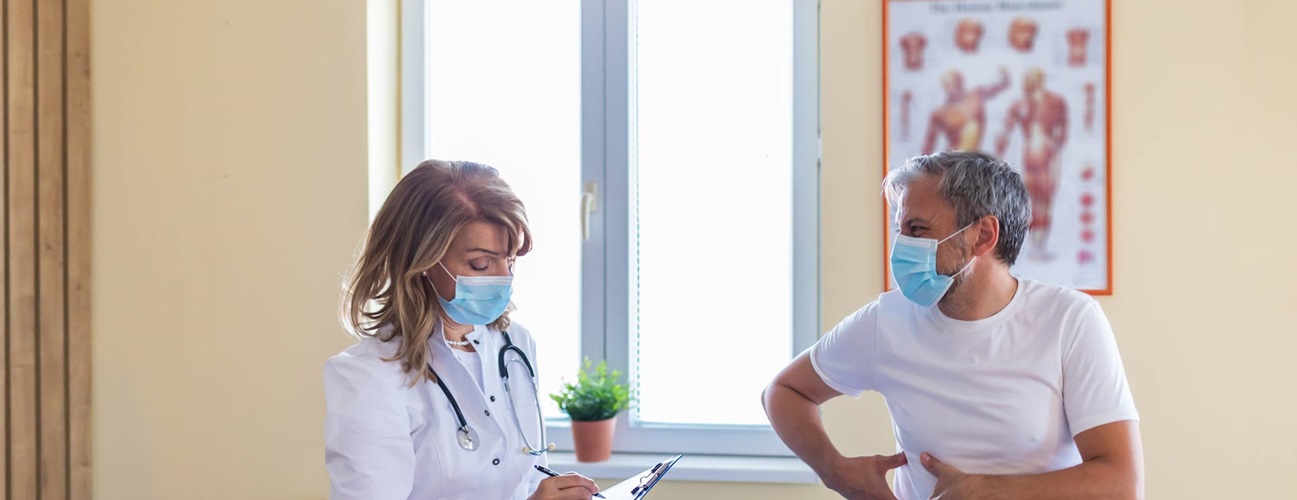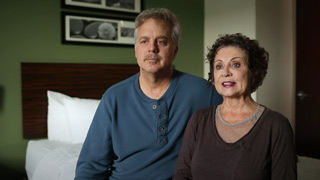Pancreatic Cancer: Experts Answer 10 Commonly Asked Questions
Featured Expert:
Pancreatic cancer is the fourth most common cause of cancer death in the United States. While great strides are being made in the search and treatment of pancreatic cancer, there are still many questions about the complex disease. Jin He, M.D., Ph.D., surgical oncologist, provided responses to frequently asked questions about pancreatic cancer:
Can pancreatic cancer be prevented?
A: Unfortunately, most pancreatic cancer cannot be prevented, but you can reduce your risk by maintaining a healthy weight, stopping smoking and limiting your alcohol intake. Other risk factors include chronic pancreatitis and family history. Occasionally, precancerous lesions can be identified and, if removed early, can prevent pancreatic cancer from developing.
What are the symptoms of pancreatic cancer?
A: There are no specific symptoms for early-stage pancreatic cancer, but if you notice unintentional weight loss, jaundice (yellowing of the skin) and stomach pain, we recommend that you see your primary care physician.
What tests are available to detect pancreatic cancer?
A: There are currently no simple tests for pancreatic cancer. Most cases are found when symptoms develop or an imaging study, such as a CT or MRI scan, is done for another reason. There is active research at Johns Hopkins that is aimed at developing a test for pancreatic cancer in the blood, urine and stool.
Why is pancreatic cancer usually found in the later stages?
A: Pancreatic cancer usually does not cause symptoms, so approximately 50 percent of pancreatic cancers will not be identified until they have already metastasized (spread to other parts of the body).
Is there a direct correlation between breast cancer and pancreatic cancer?
A: There is a relationship between BRCA mutations (breast and ovarian cancer) and pancreatic cancer. A BRCA mutation approximately doubles the lifetime risk of developing pancreatic cancer. Around 5 percent of people with pancreatic cancer have a BRCA mutation. However, breast cancer is very common, so not all patients with breast cancer are thought to have an increased risk of pancreatic cancer.
Is pancreatic cancer a genetic disease?
A: Pancreatic cancer can be genetic, but the vast majority of pancreatic cancer is sporadic. Many genes play a role in the growth of pancreatic cancer. The four major driver genes include KRAS, P53, P16 and SMAD4.
If you have a strong family history of pancreatic cancer, you should contact a genetic counseling and screening program. Familial pancreatic cancer is defined as having two or more first-degree relatives with pancreatic cancer. Johns Hopkins has a familial pancreatic cancer registry for surveillance of such patients.
Can pancreatitis be a precursor for pancreatic cancer?
A: Yes, it can be. However, most cases of pancreatitis are unrelated to pancreatic cancer.
What are the chances of a pancreatic cyst becoming cancerous?
A: Pancreatic cysts are very common, and the majority are not cancerous, but some may be, and others may be precancerous. There are several different types of pancreatic cysts ranging from benign to malignant. The key is to determine the malignant risk of your specific cyst.
Is it possible to have full recovery from pancreatic cancer?
A: Yes, it is possible to have a full recovery from pancreatic cancer.
Can you live without a pancreas?
A: Yes, you can live without a pancreas, but you will be diabetic, which means you will have to take insulin regularly. You will also need to take enzyme pills to help with the digestion of food.
Pancreatic Cancer Prevention | Lana's Story
Lana Brandt had a strong family history of pancreatic cancer. After experiencing several bouts of pancreatitis, she learned that she carried a genetic mutation that increased her risk of pancreatic cancer. As a means of pancreatic cancer prevention, experts at Johns Hopkins removed her pancreas and spleen using a minimally invasive technique. They then performed an autoislet cell transplant to help her body continue to produce insulin after surgery.






